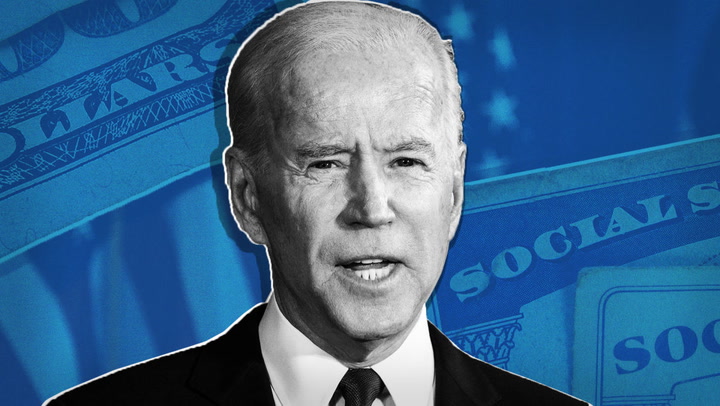The tax code is complicated enough without having to worry about sudden changes when a new administration comes in with an agenda. So, what do you need to know? We'll discuss all of the major points in Joe Biden's tax plan so that you can be prepared for whatever happens next!
Remember, most of the changes discussed in this article are still yet to be enacted by Congress. The provisions are subject to revision or elimination based on the fragile state of our economy. These provisions are aimed at providing stability while upgrading our nation's infrastructure program. How will the government fund an expenditure of this size? By increasing taxes on individuals generating over $400,000 a year!
This is a summary of the tax changes proposed by Biden, some of which are enacted and some are just proposals.
American Rescue Plan (Active)

March 11th 2021 marks the first day of tax code changes when Biden signed the American Rescue Plan Act into law. This provided cash payments to individuals in addition to tax law changes that benefit lower-income families. Biden mentioned these changes during his election campaign, so it did not come as a shock to anyone. The changes are time-limited and tailored to being a temporary antidote for issues that arose during the pandemic.
- 2021 Child Tax Credit of $3,600 per child under the age of 6 and $3,000 per child ages 6-17, this credit is fully refundable and payable in advance. (Reverts to $2,000 per child under the age of 17 unless extended by Congress)
- 2021 Child and Dependent Care Tax Credit maxed at $4,000 and $8,000 for two or more qualifying individuals and is refundable for some tax payers.
- Earned Income Credit was extended to workers under the age of 25 and individuals age as young as 19 are eligible for more income and benefit from a higher phaseout level. (Eliminates maximum age for eligibility)
- Reduction to Affordable Care Act healthcare coverage premiums through an application of credits. (Effective for 2 years)
American Jobs Plan (Proposed)
On March 31, 2021, Biden proposed the American Jobs Plan, which tightens the belt on income taxes for corporate profit. These increases were designed to aid in the funding of our nation's infrastructure upgrade. The details include a higher corporate tax rate, in addition to a minimum tax on book income and profits of international corporations.
- Corporate Rate rises from 21% to 28% plus a 15% minimum tax applied to corporate book income.
American Families Plan (Proposed)
On April 28, 2021, Biden revealed his American Families Plan with an estimated cost of 2 trillion dollars. The plan focuses on increasing taxes on wealthy individuals by significantly increasing the tax rate on capital gains. The programs funded by the tax increase would provide American children with 4 years of free education. The funding will also support paid family medical leave, expanded child care and nutrition programs.
This plan also supports the funding of the Internal Revenue System in an attempt to reduce the gap of lost tax revenue. Historically, the IRS has been underfunded and has been forced to reduce audits and enforcement efforts. An increase in auditing and greater enforcement efforts are projected to enable the IRS to recover hundreds of millions in tax liabilities that currently go unpaid.
- Taxpayers with income over 1 million dollars will be subjected to a 43.4% capital gains tax
- Top individual tax rate increases to 39.6%
- Provides IRS with resources to bolster enforcement
Infrastructure Tax Increases
The plans proposed by Biden is to craft tax policy goals that incentivize job creation and investment in the U.S. by penalizing corporate profit-shifting to tax havens to ensure that large corporations pay their fair share.
This will largely raise the corporate tax rate, introduce new minimums and repeal incentives for offshoring jobs. The fossil fuel industry will be targeted by abolishing preferences and a strict enforcement of the tax code.
The infrastructure deal proposes upgrades and investments ranging from transportation and roads, to healthcare and education. It is still unclear which industries will benefit the most from these investments, but policy makers have stated that the majority of the funds will be allocated to businesses with strong ESG values.
- Proposed investments will be made over the next 10 years
- Estimated 2.3 trillion dollar cost offset by taxing the wealthy

Individual Income Tax
The American Families Act proposal promises to avoid increasing taxes on individuals with an income lower than $400,000. The promise is backed by an increase in refundable credits already enacted under the earned income and child tax credit programs.
These changes are intended to provide 4 free years of education as mentioned earlier. They would also provide funding to assist Historically Black Colleges and Universities (HBCUs), Tribal Colleges and Universities (TCUs) and various other minority-serving institutions (MSIs).
- Includes 2 free years of education at kindergarten level plus 2 free years at community college level
- Proposes an extension of temporary tax credits awarded under the American Rescue Plan
Income Tax for Wealthy
According to the White House, the proposed top income tax rate increase from 37% to 39.6% will only affect the top 1% of taxpayers. The top rate on long-term capital gains tax will practically double from 20% to 39.6%. In addition to the current net investment income tax of 3.8%, the new top federal tax rate on capital gains would total 43.4%. This would also almost double from the current tax of 23.8% enacted by Trump.
The Biden administration indicates that only taxpayers whose incomes exceed 1 million dollars will experience a change in their tax liabilities. However, it is not certain whether the threshold will apply per individual tax payer or per return. After state laws are applied, the impact of these changes will vary because some states do not levy an income tax or excludes capital gains taxes all together.
- Highest state capital gains tax rate is estimated to be 5.2%, when combined with federal taxes, this brings the total for high-income taxpayers to 48.6%
- Estimated that only top .3% of taxpayers will experience a capital gains tax increase
- Opponents warn that capital gains changes may have an adverse effect on stock market
- Supporters claim that majority of U.S. shareholders will be shielded from increases by purchasing stocks through a 401k plan or other non-taxable accounts
Step-up Basis and Carried Interest
The American Families plan includes provisions to counter "loopholes" that for the most part, benefit higher-income individuals. Biden often criticized these loopholes during his election campaign and alleged that it allows profitable corporations to dodge paying their fair share of taxes.
The plan would repeal the "step-up basis" rule that previously enabled family members to pass assets down from one generation to another without having to pay tax on the increase in value. Biden promises that family-owned farms passed down to family members who intend on carrying on with operations, will retain access to the step-up basis rule.
In addition to closing the step-up loophole, Biden would also close the carried interest loophole which allows private equity and hedge fund managers to receive their partnership interests tax-free.
- Gains will not be taxed when appreciated asset is contributed to a charity
- Step-up basis will be enforced upon individuals of all income levels excluding farmers
- Permanently caps individual deductions of business losses to offset only their gross income and business profits plus $250,000 ($500,000 for joint)
Conclusion
The Biden administration has outlined extensive revisions to the IRS tax code, with more yet to come. Many of these revisions were mentioned during election season, so they should not come as a huge shock to individuals generating more than $400,000 in annual income. It is my belief that corporations will be largely affected by these changes, even shifting some business models completely.
His administration projects that the revisions to the IRS code and return on investments enacted under the American Families Plan will foot the bill for this 15 year infrastructure upgrade. Officials view their proposals as a way to increase fairness in the tax system by lightening the burden on low-income individuals, while proportionally increasing taxes on the wealthy.
The White House emphasizes that only 1-2% of taxpayers will experience an increase in tax liability.
COMMENTS
Want to get in on the discussion? We'd love to hear from you. Drop a comment below and we'll get back to you as soon as we can!





